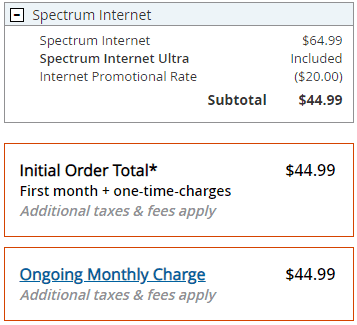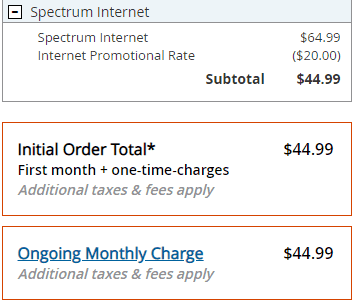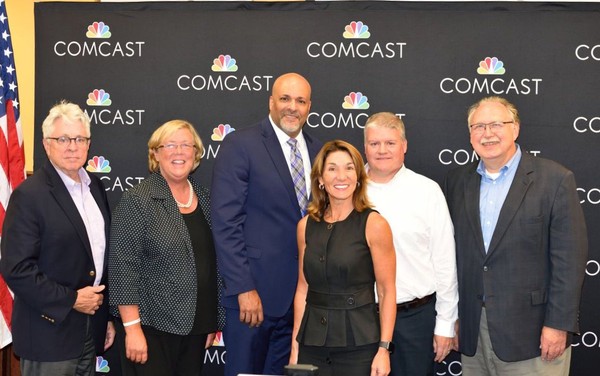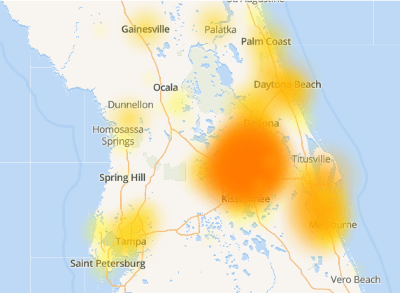 Spectrum customers living in areas wired for fiber optics get substantially better discounts for longer periods of time than those living in areas where anemic phone company DSL service is the only competition.
Spectrum customers living in areas wired for fiber optics get substantially better discounts for longer periods of time than those living in areas where anemic phone company DSL service is the only competition.
Charter Communications, like many cable operators, asks all prospective customers to enter their complete mailing address, claiming prices “vary per location.” What the company does not say is that it maintains a database of addresses where fiber-fast competition is currently available and only offers the best deals to those locations.
In Rochester, N.Y., Spectrum competitor Greenlight Networks has made headway installing fiber to the home service in select neighborhoods in the city and suburbs. As fiber service becomes available, some Spectrum customers start switching to Greenlight, which markets 100/20 Mbps service for $50/mo, 500/50 Mbps for $75/mo, or 1,000/100 Mbps for $100/mo. In response, to keep customers, Spectrum offers 24 months of reduced pricing on its internet package. But your address must match Spectrum’s database as being within a competitive service area. Otherwise, the deals will not be so good.
Stop the Cap! found dramatic differences in prices between addresses nearly across a street from one another – one wired for Greenlight Fiber, the other not.
Competitive Area (Spectrum, Frontier DSL, Greenlight fiber-to-the-home service)


Spectrum Ultra (400 Mbps): $44.99/month for 24 months (free upgrade from Standard 100 Mbps package)
All promotions last 24 months
Free Wi-Fi Service
No installation or set up fee*
Non-Competitive Area (Spectrum, Frontier DSL)


Spectrum Standard (100 Mbps): $44.99/month for 12 months (for Ultra 400 Mbps, add $25/mo)
All promotions last 12 months
Wi-Fi Service is $5/month
$49.99 professional installation fee required for Ultra 400 Mbps service*
In Greenlight service areas, Spectrum now undercuts Greenlight’s pricing by offering Spectrum Ultra 400 Mbps service for $5 less than what Greenlight charges for 100 Mbps.
“Racerbob,” a DSL Reports reader in Webster, N.Y., discovered the same “enhanced offers” as an ex-Spectrum customer. He switched to Greenlight three months ago. He discovered if he added a Spectrum cable TV package, the price for 400 Mbps Ultra internet service dropped even lower, to $39.99 a month for two years.
In all, a sample package he assembled delivered dramatic savings, but only if a robust competitor like Greenlight was also offering service to his address:

Addresses used for comparison were in zip code 14618, with verified access to Greenlight at a street address to represent the “competitive” service area and verification Greenlight was not available at the address used for “non-competitive” service area. *-Although a setup fee was found on the final checkout page in both competitive and non-competitive service areas, it was only actually charged in non-competitive service areas during our investigation.


 Subscribe
Subscribe
 A divide and conquer campaign to peel off communities from the WiredWest project has been underway for years. Earlier this year, MBI
A divide and conquer campaign to peel off communities from the WiredWest project has been underway for years. Earlier this year, MBI  Charter’s lawyer suggests it is in the Commission’s best interest to accept additional delays in the deadlines to file
Charter’s lawyer suggests it is in the Commission’s best interest to accept additional delays in the deadlines to file 
 News 12 The Bronx/Brooklyn (shared studios/talent, but branded individually to each borough)
News 12 The Bronx/Brooklyn (shared studios/talent, but branded individually to each borough)
